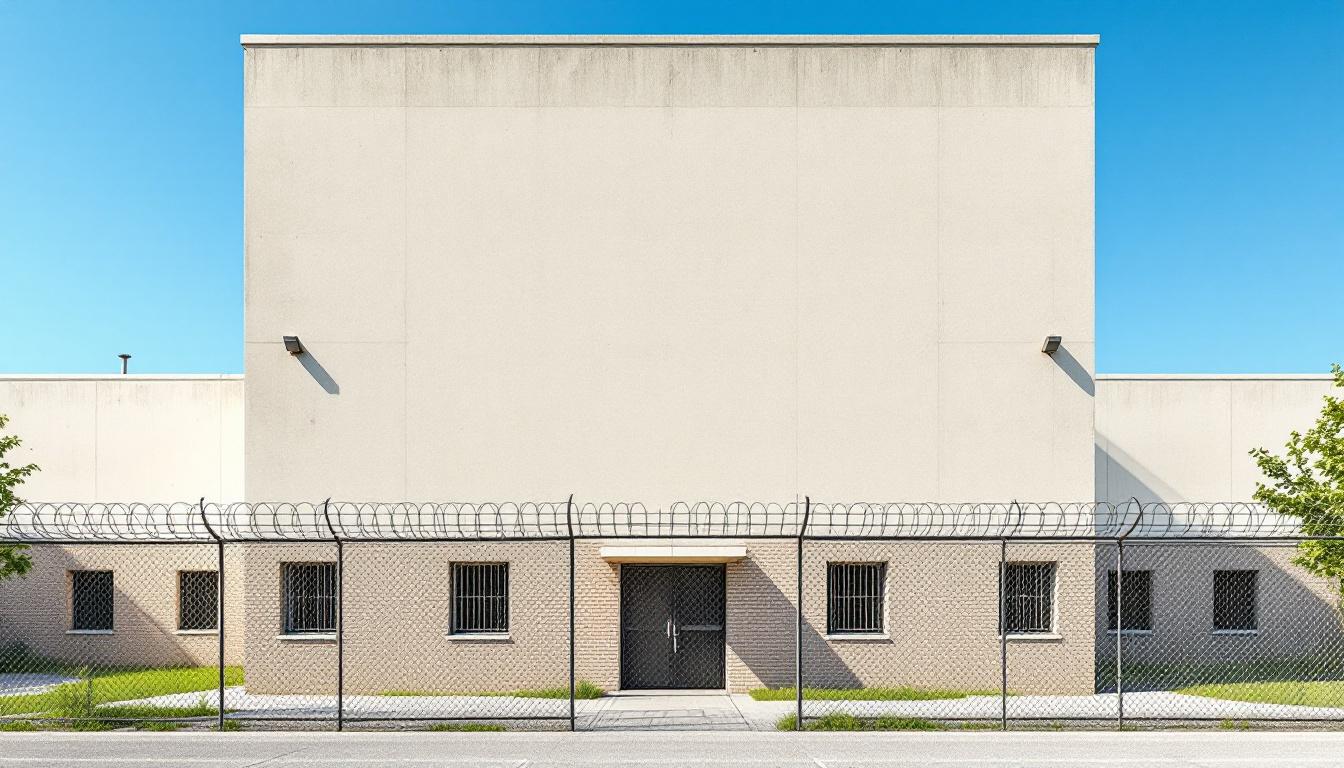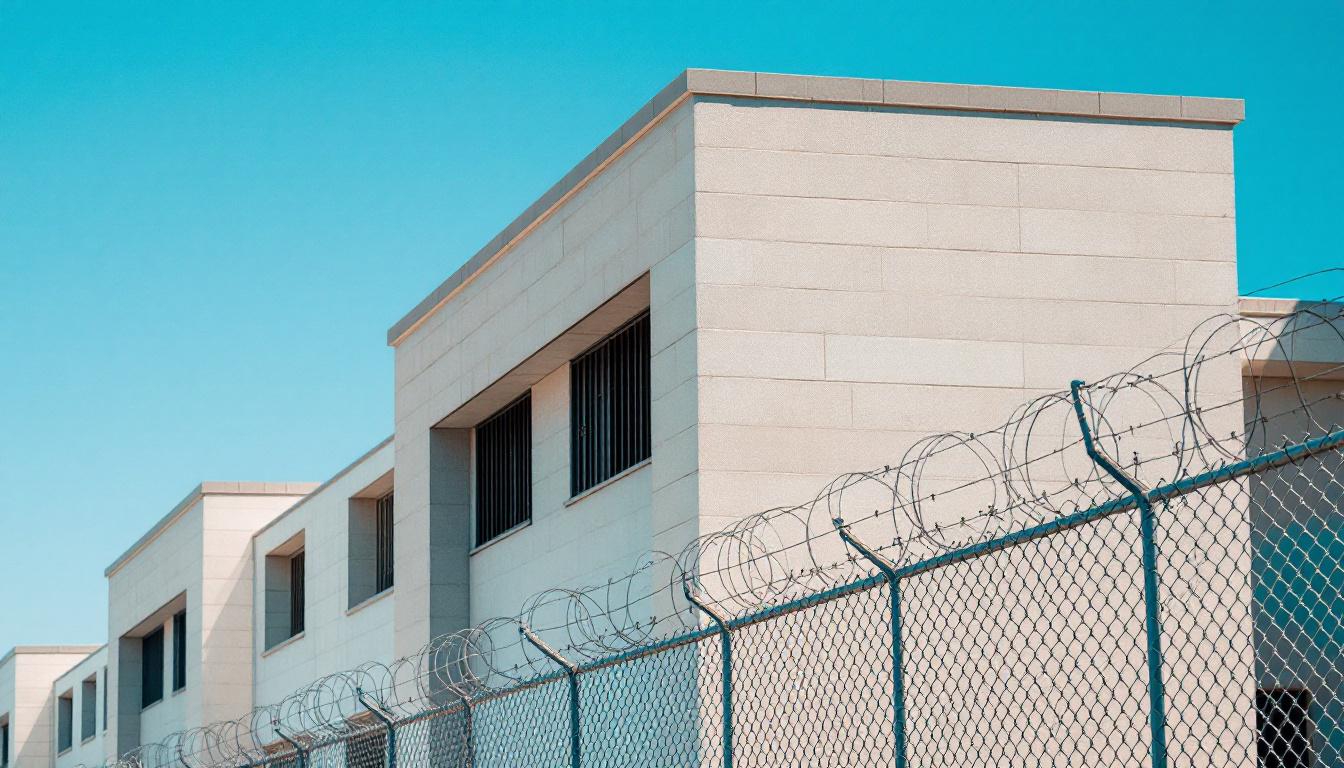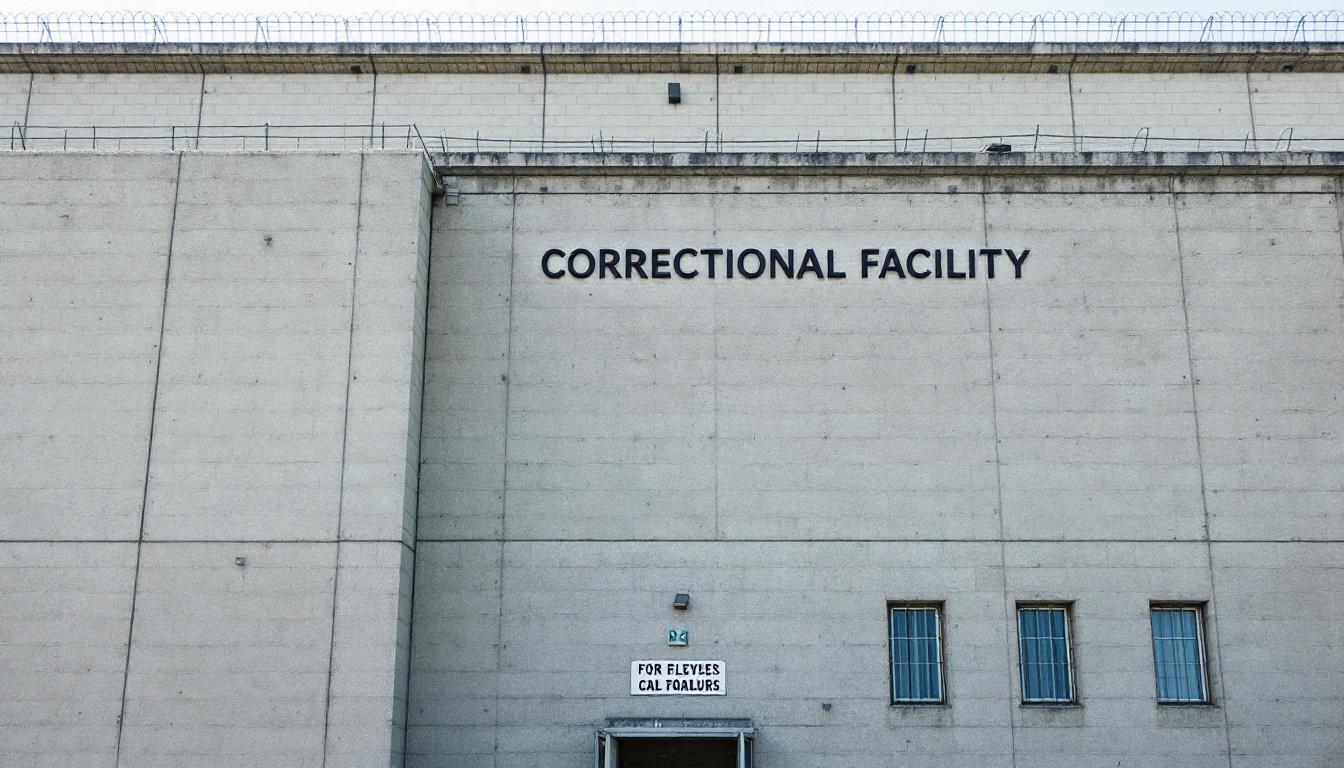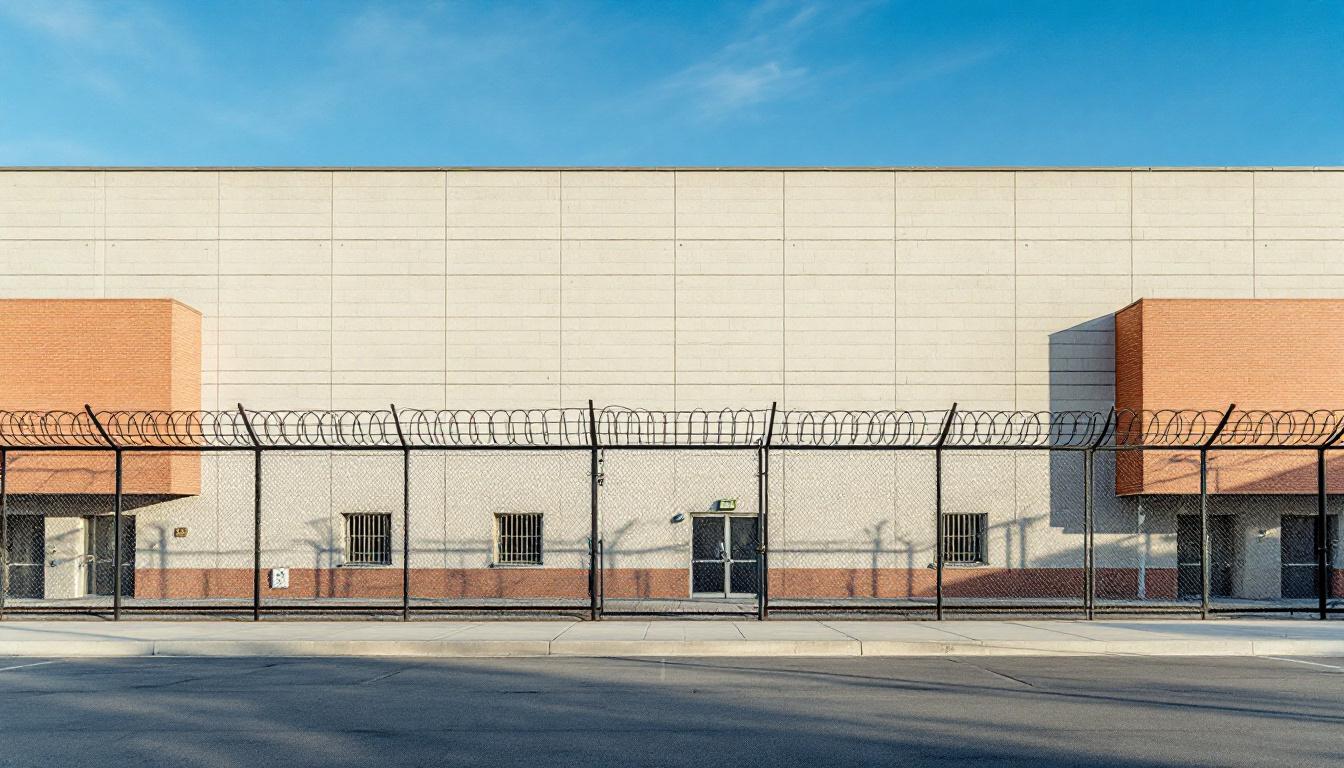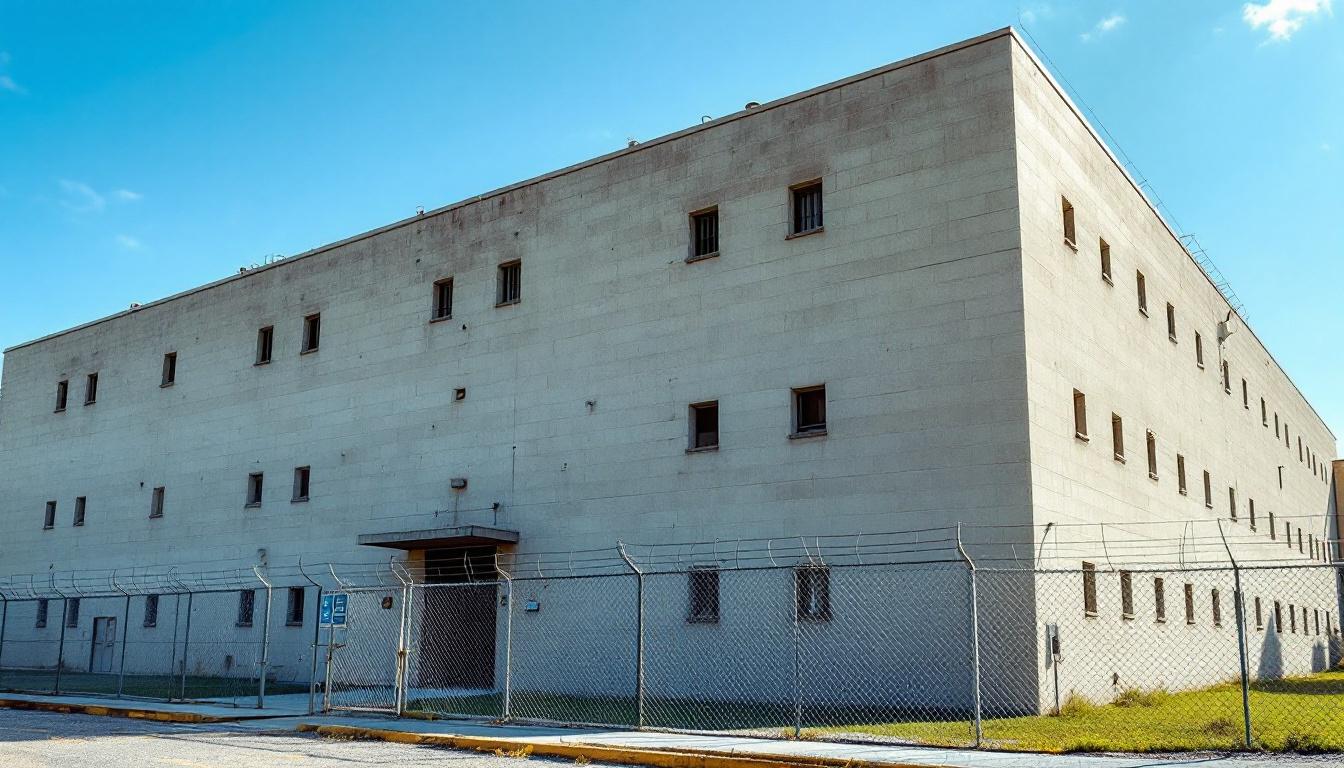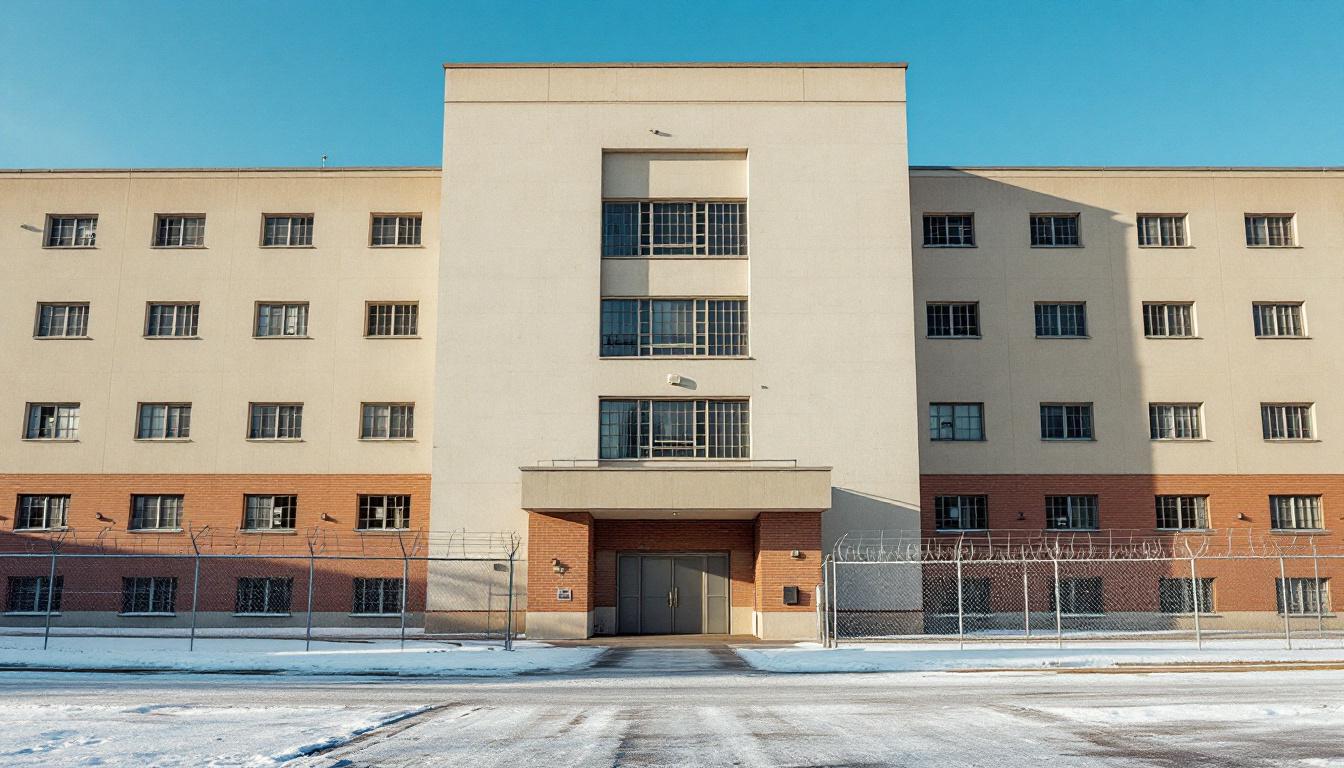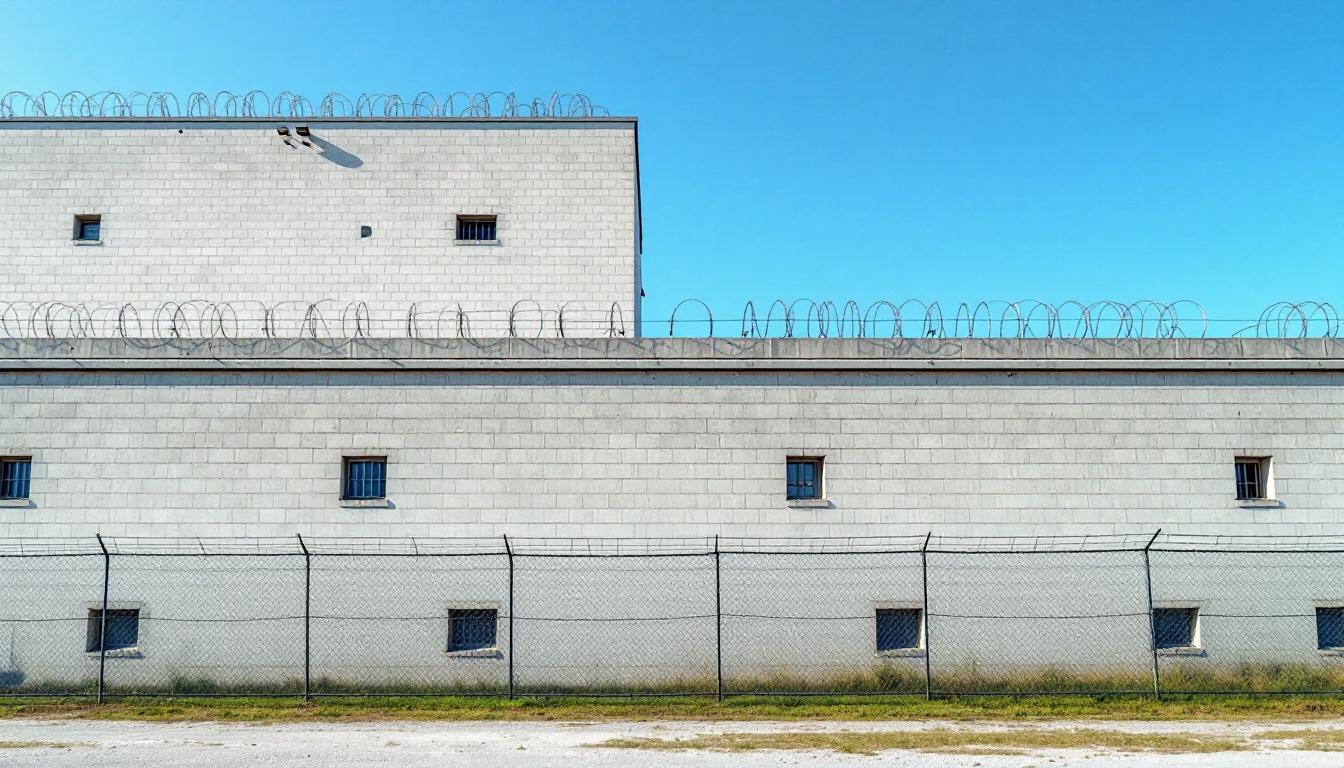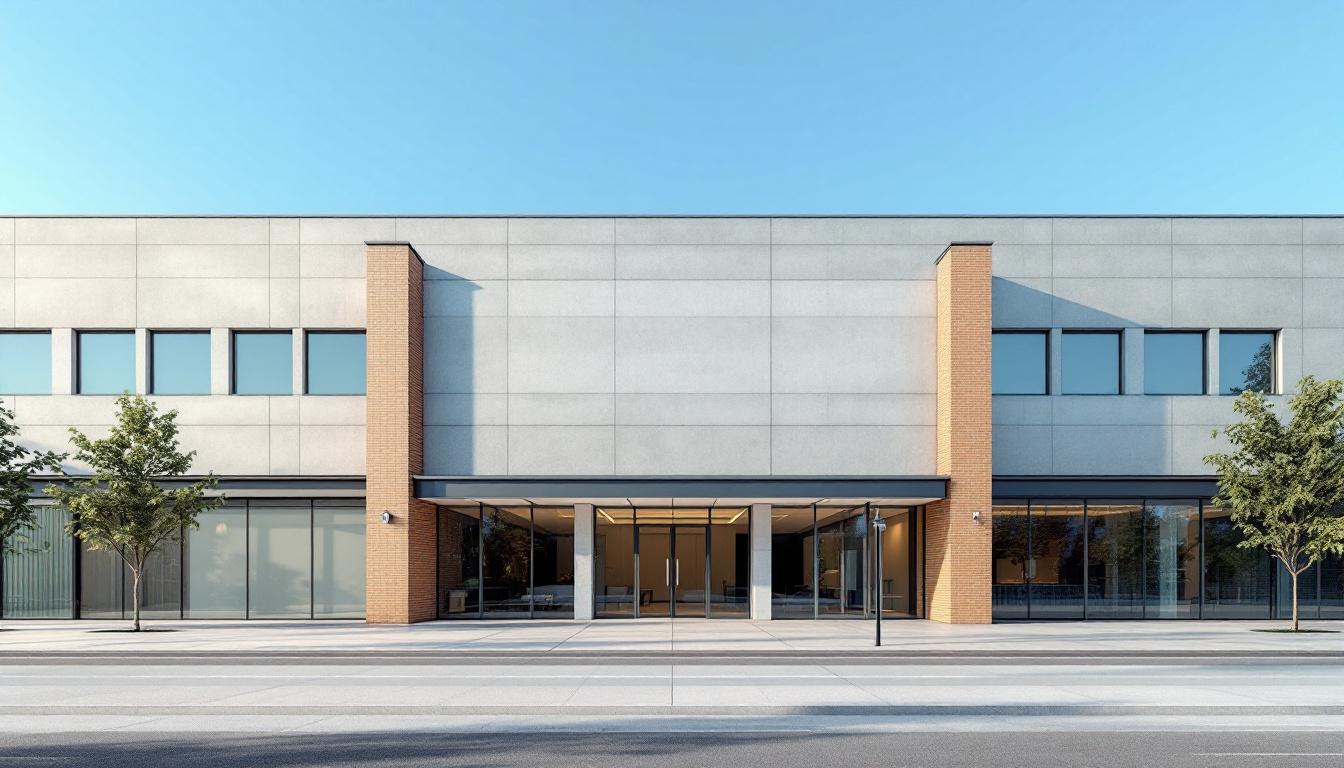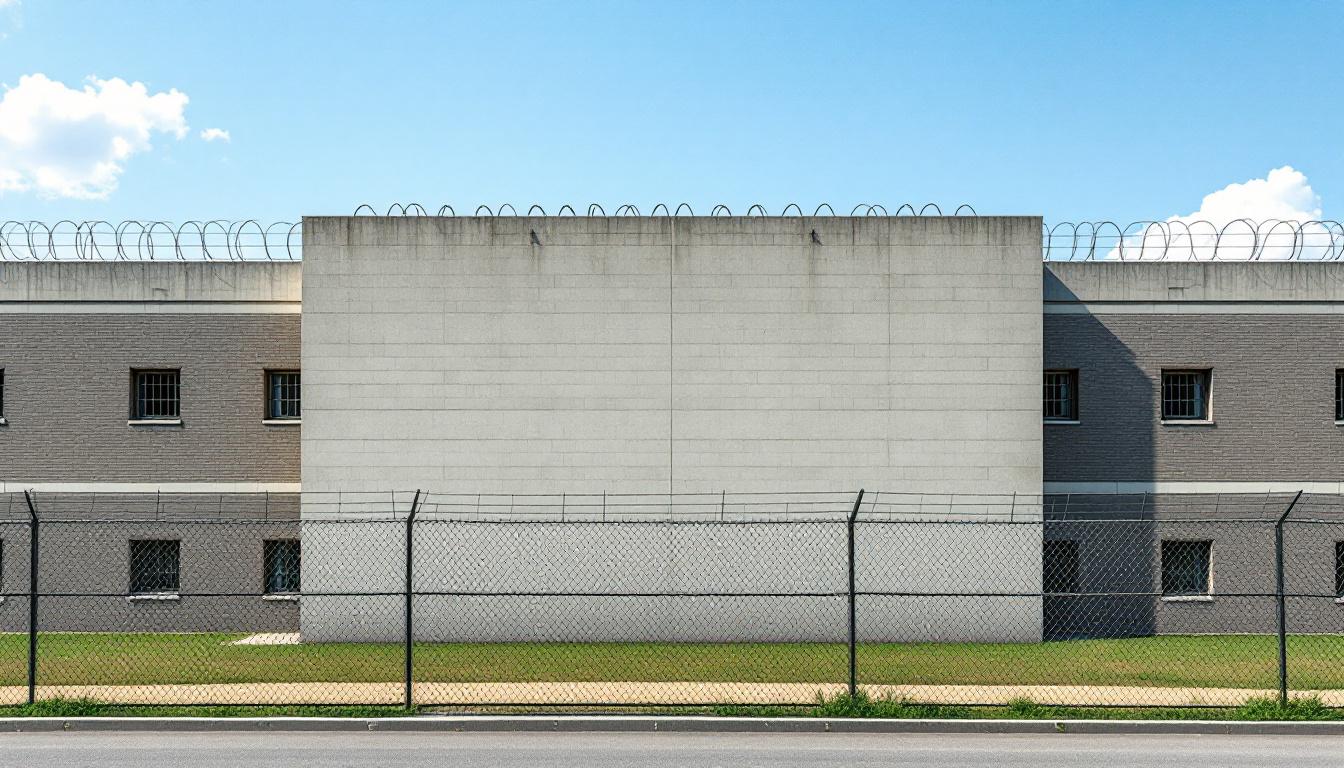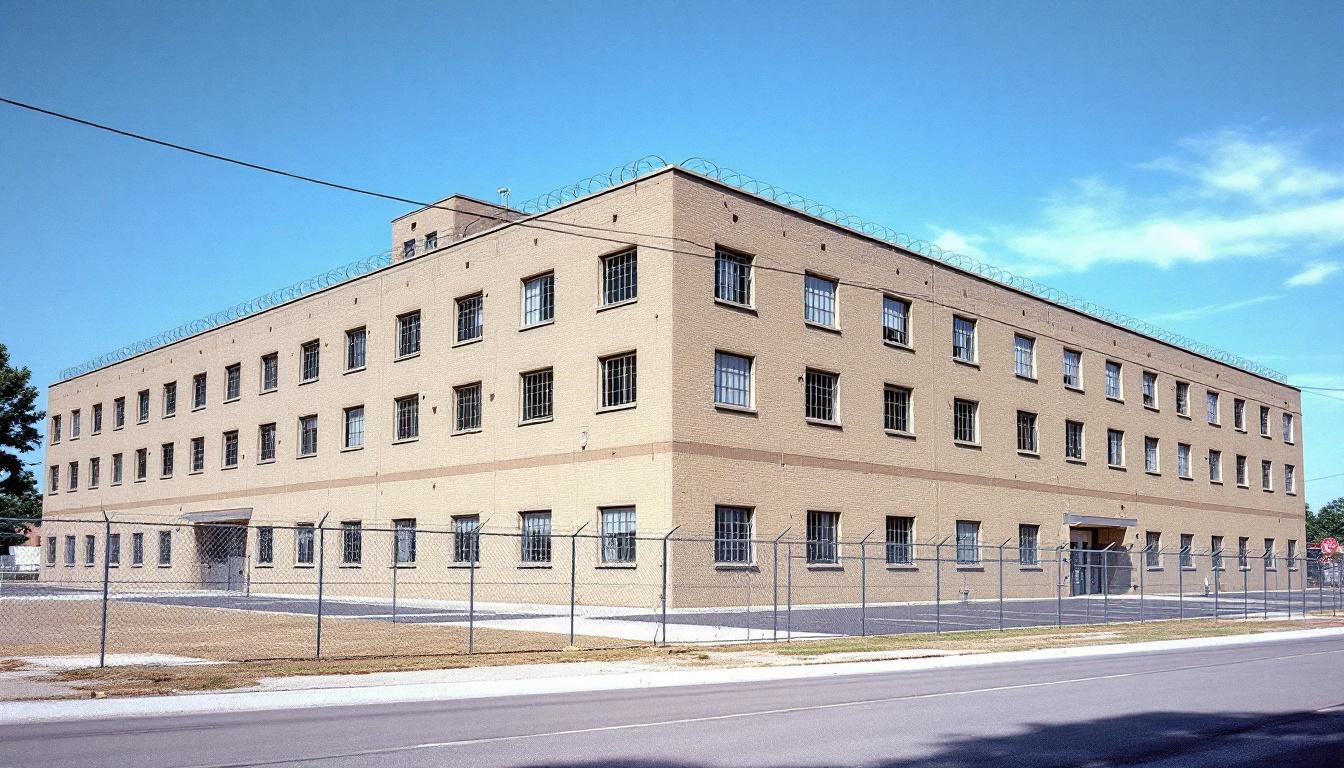
Quick Navigation
How to contact an inmate at Finney County Jail
This comprehensive guide will walk you through how to connect with an inmate at Finney County Jail. Follow the steps below to find an inmate and send letters and photos:
- Search for the inmate using our search tool below
- Create your account or log in to Penmate
- Write your message (up to 6,000 characters)
- Send instantly - inmates receive printed copies daily
Find an Inmate
Search for an inmate to start communicating today
Tip: You can search by first name, last name, or inmate ID number
To contact a person at Finney County Jail start by searching for the person on the official facility website. Perform a search by following these steps:
- Step 1: Enter their first name and last name into the search form and click "Search"
- Step 2: Locate their inmate record
- Step 3: Write down their Inmate ID and any housing information provided
Important! Be sure to enter the person's full name. Nicknames should not be used.
How to Send Messages to Inmates

You can use your phone or computer to send emails, letters, and photos to an inmate. Messages are sent electronically to inmate tablets or kiosks at the facility. If you would like to send a message, start by searching for an inmate at Finney County Jail.
Sending Photos and Postcards

A great way to send love and support to a loved one at Finney County Jail is to send photos and postcards. It only takes a few minutes to send photos from your phone and it makes a huge difference. You can also mail postcards with words of support and inspiration, or design your own postcard for special moments like birthdays and holidays.
Important! Be sure not to send any explicit photos or they may not be approved by the facility. You can also use a photo printing app like Penmate to make sure your photos are printed at the correct size (4x6 or 3x5) and are mailed according to the rules and regulations of Finney County Jail.
Frequently asked questions about Finney County Jail
-
How long does it take to deliver a message?
If you're sending an email message your letter is usually delivered within 24-48 hours. For messages sent via mail you should expect delivery within 3-7 days. All messages will need be approved by Finney County Jail.
-
How much does it cost to send a message to Finney County Jail?
You can send a message free using your phone or mail a message via USPS for the price of a $0.60 stamp and envelope. You can also purchase credits or e-stamps from services starting at $1.99.
-
What services can I use to contact an inmate at Finney County Jail?
Penmate
You can use Penmate to send letters and photos to an inmate from your phone. It's an easy way to stay in touch during your loved one's incarceration. Use the inmate locator to find an inmate's location and contact information, then you can send messages within a few minutes.
Securus messaging
Securus may be another option for communicating with an inmate at Finney County Jail. You can create a friends and family account and purchase credits to send messages. All messages will be reviewed and must be approved by the facility.
JPay
Some county jails and state prisons may support sending messages with JPay. You must register an account with the system, find your loved one, and purchase stamps to send messages. For some locations you can also attach photos.
Smart Jail Mail
You may also check if Smart Jail Mail is available at Finney County Jail. Smart Jail Mail is operated by Smart Communications and has contracted with some state and county jails. After purchasing credits, your messages and photos are sent to the facility, printed out, and then handed out to your loved one.
-
What is the mailing address of Finney County Jail?
Mailing address:
Finney County Jail
304 N 9th St
Garden City, KS 67846
Phone: (620) 272-3756Business hours:
- Monday: Open 24 hours
- Tuesday: Open 24 hours
- Wednesday: Open 24 hours
- Thursday: Open 24 hours
- Friday: Open 24 hours
- Saturday: Open 24 hours
- Sunday: Open 24 hours
-
What are the visiting hours at Finney County Jail?
Visiting hours at Finney County Jail vary by housing unit and security level. Generally, visits are scheduled on weekends and holidays, with some facilities offering weekday visits. Contact the facility directly at (620) 272-3756 or check their website for the current visiting schedule. Visits typically last 30-60 minutes and must be scheduled in advance.
-
What items are prohibited when sending mail to Finney County Jail?
Prohibited items typically include: cash, personal checks, stamps, stickers, glitter, glue, tape, staples, paperclips, polaroid photos, musical or blank greeting cards, hardcover books, magazines with staples, and any items containing metal or electronics. Only send letters on plain white paper with blue or black ink. Photos must be printed on regular photo paper (no Polaroids). Always check with Finney County Jail for their specific mail policies.
-
How do I send money to an inmate at Finney County Jail?
You can send money to an inmate at Finney County Jail through several methods: 1) Online using JPay, Access Corrections, or the facility's approved vendor, 2) Money orders mailed directly to the facility with the inmate's name and ID number, 3) Kiosks located in the facility lobby, or 4) Over the phone using a credit or debit card. Fees vary by method, typically ranging from $2.95 to $11.95 per transaction.
-
Can I schedule a video visit with an inmate at Finney County Jail?
Many facilities now offer video visitation as an alternative to in-person visits. At Finney County Jail, video visits may be available through services like Penmate, Securus Video Connect, GTL, or ICSolutions. Video visits typically cost $10-20 for 20-30 minutes and must be scheduled in advance. You'll need a computer or smartphone with a camera and reliable internet connection. Contact the facility for their specific video visitation policies and approved vendors.
-
What identification do I need to visit an inmate at Finney County Jail?
All visitors must present valid government-issued photo identification such as a driver's license, state ID, passport, or military ID. Minors must be accompanied by a parent or legal guardian who can provide the minor's birth certificate. Some facilities require visitors to be on the inmate's approved visitation list, which may require a background check. Contact Finney County Jail for specific ID requirements and visitor approval procedures.
-
How can I find out an inmate's release date?
To find an inmate's release date at Finney County Jail, you can: 1) Use the online inmate search tool if available, 2) Call the facility's records department, 3) Contact the inmate's case manager or counselor, or 4) Have the inmate provide this information during a call or visit. For privacy reasons, some facilities only release this information to immediate family members.
Facility Overview
Official Website

About Finney County Jail
Serving the correctional needs of southwestern Kansas, the Finney County Jail, KS operates as a vital component within the state's broader detention framework, maintaining secure custody for individuals awaiting trial and those serving shorter sentences in Garden City. This KS correctional facility functions within the agricultural heartland of the region, where community safety and structured supervision intersect with the practical demands of rural law enforcement operations.
The facility typically maintains operational standards aligned with Kansas correctional protocols, emphasizing both security measures and those incarcerated services that may support eventual community reintegration. Programming often includes basic educational opportunities, substance abuse counseling, and work detail assignments that help maintain facility operations while providing structure for residents. Medical services and mental health support generally form essential components of daily operations, addressing the diverse needs of the population housed within the county jail system.
Garden City's position as a regional hub influences the facility's role in coordinating with state correctional goals, particularly regarding pre-trial detention and short-term sentencing protocols. The jail may collaborate with local courts, probation services, and community organizations to facilitate transitions between custody and supervised release, reflecting the interconnected nature of Kansas's criminal justice system across both urban and rural jurisdictions throughout the midwest region.
Programs & Services
Personal transformation begins with access to meaningful opportunities, and those incarcerated at Finney County Jail typically find themselves with various pathways for growth and development. The facility's approach to rehabilitation centers on providing structured environments where individuals can build essential life skills while maintaining the security and safety standards required in a correctional setting. These offerings may furnish participants with tools needed for successful reintegration into their communities upon release.
Educational advancement forms a cornerstone of the facility's development-focused approach. Those incarcerated often have access to education programs designed to help them complete their high school equivalency or improve basic academic skills through literacy programs. The structured learning environment allows participants to work at their own pace while developing critical thinking abilities. Also available may be vocational training opportunities that teach practical job skills in various trades, helping individuals prepare for employment opportunities that await them in the community.
Support services and therapeutic interventions typically complement the educational offerings at the facility. Substance abuse treatment programs may provide those struggling with addiction the tools and strategies needed to maintain sobriety and make healthier life choices. Also included in the facility's approach to rehabilitation is community service, which allows participants to give back while developing a sense of civic responsibility and work ethic. These comprehensive offerings work together to create an environment where personal growth and positive change can flourish within the secure structure of the correctional facility.
Daily Life & Visitation
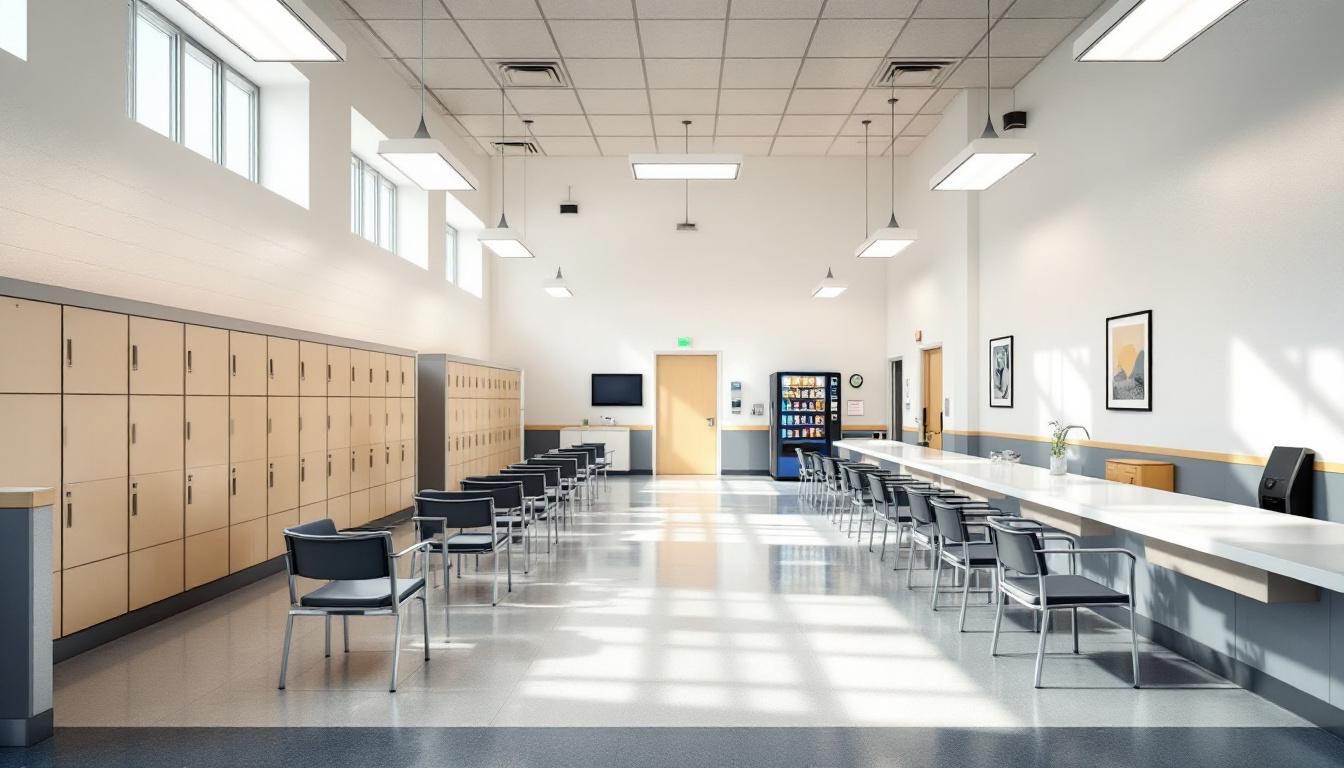
Maintaining connections with loved ones forms a cornerstone of the daily experience for those incarcerated at Finney County Jail. Today's structured environment consistently emphasizes the importance of family bonds and community support through various communication channels and visitation opportunities. Those incarcerated typically begin their day with morning counts and meal service, followed by scheduled activities that may include educational programming, work assignments, or recreational periods that furnish both structure and opportunities for positive social interaction.
Housing arrangements generally consist of dormitory-style or cell-based accommodations where those incarcerated share living spaces with others. These communal environments often foster relationships and mutual support among residents. Meals are typically served in common dining areas, providing natural opportunities for conversation and community building. Also, the facility may offer recreational activities such as television viewing, card games, or outdoor exercise periods when weather and security considerations permit. However, these activities operate within the security framework necessary for maintaining facility safety and order.
Programming schedules typically include work assignments that may involve kitchen duties, cleaning responsibilities, or facility maintenance tasks. These positions often provide those incarcerated with a sense of purpose and routine while developing job skills. Family connections remain vital through scheduled visitation periods and telephone privileges, which generally allow regular contact with loved ones. Also, the commissary system typically enables family members to provide additional support by depositing funds for personal items and snacks. However, all communication and visitation operates according to established security protocols designed to maintain facility safety while preserving these important family bonds.
Ready to Connect?
Start communicating with your loved one today
Search for an Inmate
